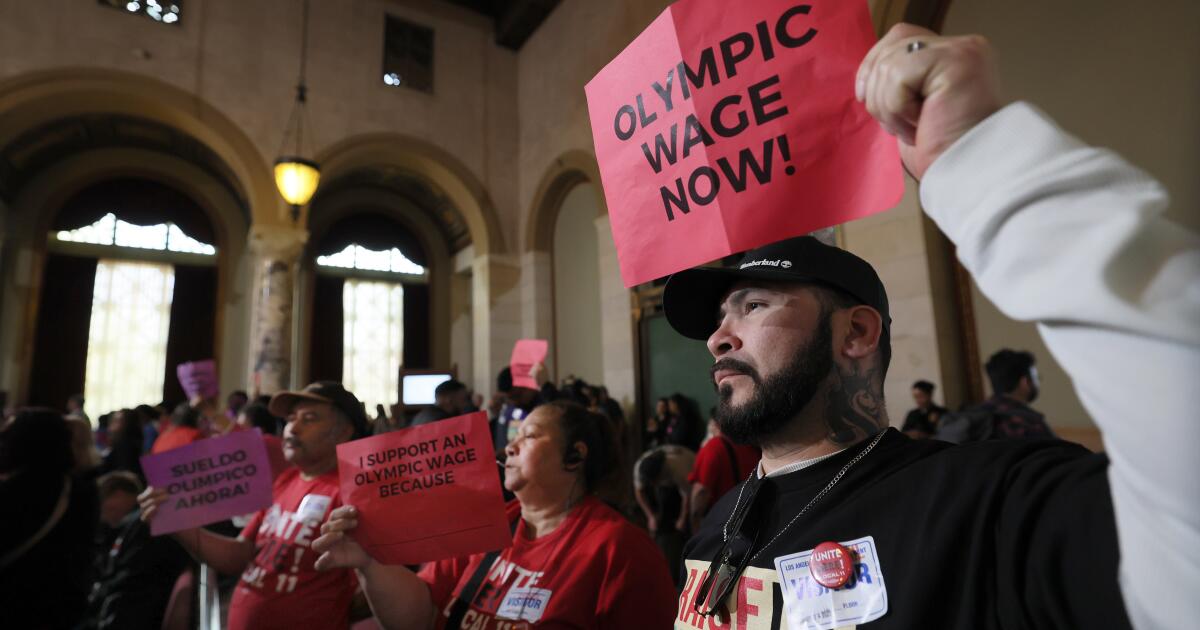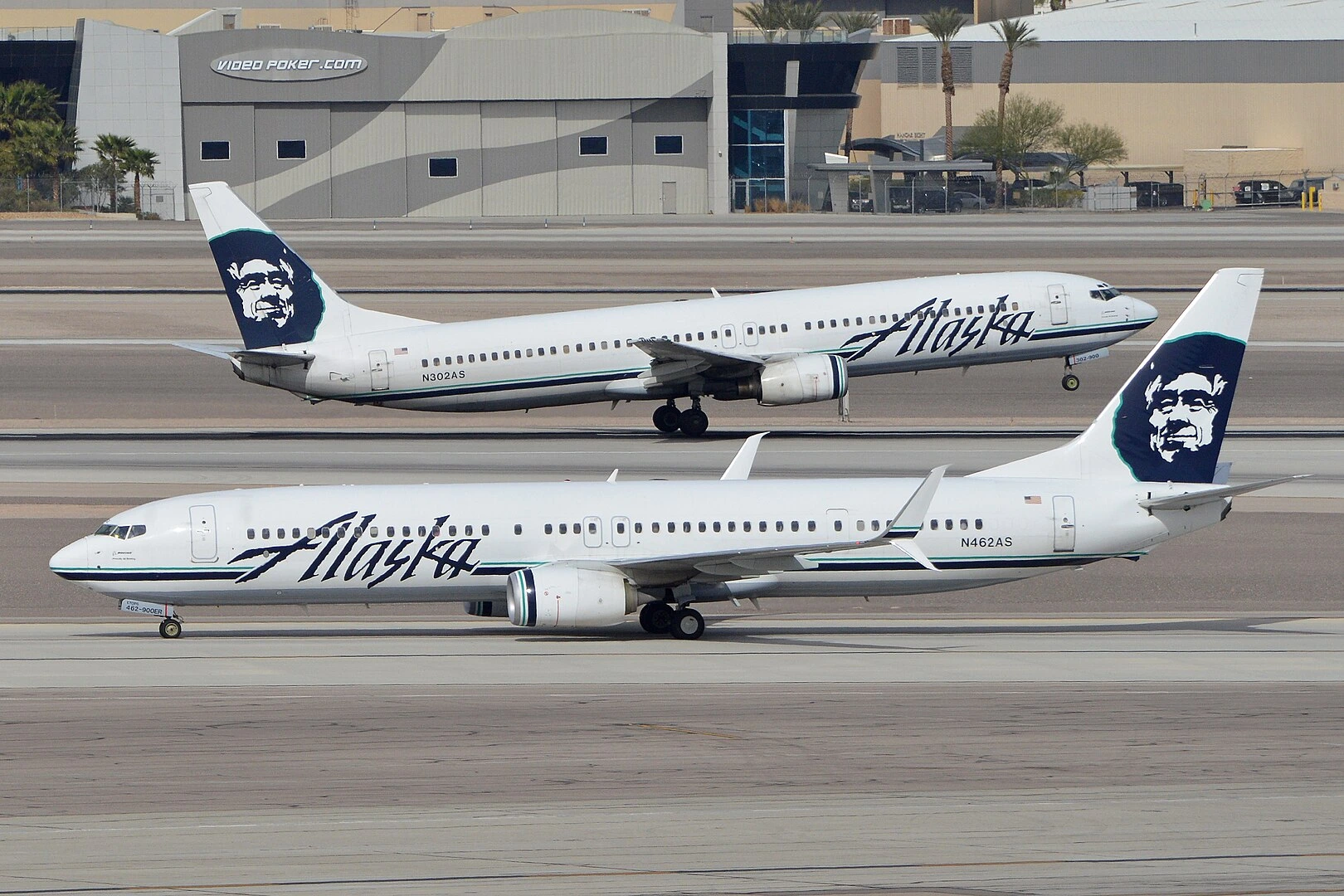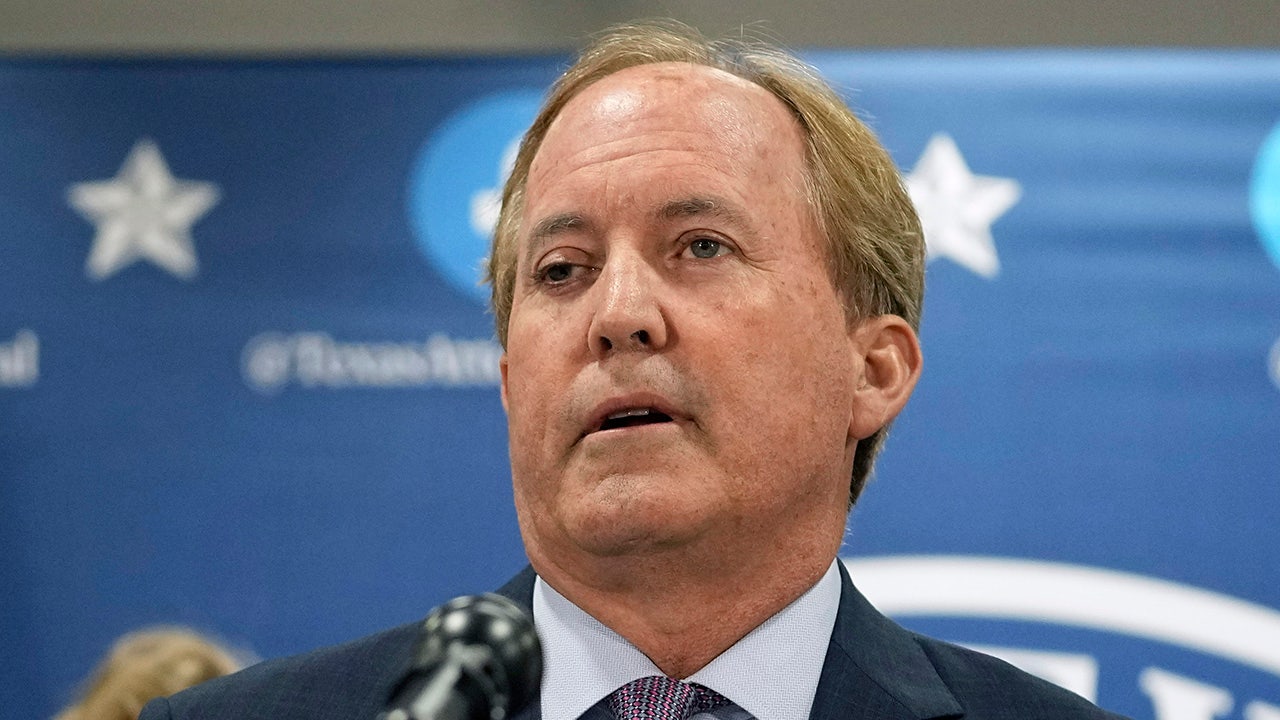Business
Summer Airline Woes Are Here: What to Expect Traveling This Weekend.

A dayslong disruption of flights into and out of the Greater New York area is raising concerns about how prepared airlines are for the Fourth of July holiday, a weekend that is forecast to have record numbers of air travelers.
More than four million Americans are expected to fly this holiday period, according to the AAA, the automobile owners’ group, about 11 percent more than last year and roughly 6 percent over the record set in 2019. The busiest day of the period, with 52,564 flights, will be Thursday, the Federal Aviation Administration said.
But as travelers prepared for a busy holiday weekend, airlines sought to shift blame to the F.A.A., which runs the country’s air traffic control system, for at least some of the thousands of canceled flights and tens of thousands of flight delays nationwide this week.
Here’s what travelers need to know.
What’s the situation at airports in the Northeast?
Travel at New York’s airports, particularly Newark, has been disrupted since the weekend, with many travelers reporting long flight delays and difficulty rebooking canceled flights. In some cases, passengers reported sleeping in airports and waiting in lines or on the phone for hours to reach customer service agents.
One traveler said on Twitter that a connecting flight, operated by United Airlines and departing from Newark Airport over the weekend, had been delayed about 15 hours after passengers were “unboarded” from the plane after midnight. The traveler’s family slept on cots in the terminal.
Thunderstorms along the East Coast built up in “the perfect spot” to cut off the busy New York and Florida markets, Chris Citrola, an F.A.A. spokesman, said in a video posted online.
“What happens is a domino effect of issues,” he said. “We have crews that can’t get to where they need to, we can’t get crews out of where they need to go to and that starts turning into a lot of issues at the airport itself.”
What airlines are most affected? Who is to blame?
Of the approximately 4,500 flights canceled nationwide on Monday and Tuesday, more than 30 percent were operated by United, according to FlightAware, a flight tracking firm. Other airlines that reported substantial cancellations included JetBlue Airways, the Delta Air Lines subsidiary Endeavor Air, and Republic Airways, which flies for Delta, United and American Airlines.
By midafternoon on Wednesday, United, which maintains a hub at Newark Liberty International Airport, had canceled about 15 percent of the nationwide flights it had planned for the day, according to FlightAware. Endeavor had canceled about 12 percent of its flights, while JetBlue had canceled about 9 percent and Republic canceled about 8 percent.
United and JetBlue attributed to the problems to the weather, but also to the F.A.A.
In a statement Wednesday, United said air traffic staffing shortfalls over the weekend had contributed to “a tough operating environment.” This blame echoes what United’s chief executive, Scott Kirby, told employees in a memo earlier this week, saying that “the F.A.A. frankly failed us this weekend.” JetBlue said in a statement that it had struggled to keep up with its flight schedule after air traffic control limited trips for all airlines into and out of New York airports.
What’s really going on with F.A.A. staffing?
The F.A.A. said it had no air traffic control staffing issues along the East Coast on Monday or Tuesday. In a statement, the agency said that it “will always collaborate with anyone seriously willing to join us to solve a problem.”
Yet air traffic control has long been short-staffed, and controllers at many facilities often work six-day weeks to cover for those shortcomings.
In a report published last week, the Transportation Department found that most of the 26 critical air traffic control facilities it identified were understaffed by 15 percent or more, as of March 2022. One of those facilities, New York Terminal Radar Approach Control, which oversees some of the nation’s most complex and challenging air space, employed only 54 percent of its target number of controllers.
The report stated that the problem had been years in the making, something that United’s Mr. Kirby noted on Monday, too.
“It’s not the fault of the current F.A.A. leadership that they are in this seriously understaffed position — it’s been building up for a long time before they were in charge,” he said in his staff memo.
The F.A.A. has had staffing issues at the top as well. Its last permanent administrator stepped down in March 2022 and the agency is currently being led by its second temporary administrator.
What recourse is there for passengers with delayed or canceled flights?
Most U.S. carriers offer compensation to passengers when a flight delay or cancellation is caused by a factor within the airline’s control, such as maintenance problems or short-staffed flight crews. Bad weather and F.A.A. staffing typically do not qualify.
But when the airline is at fault, major carriers will rebook passengers on the same airline at no additional cost, and provide meals or meal vouchers when passengers are left waiting three hours or more.
To navigate possible disruptions, travelers should download and monitor airline apps, consider purchasing travel insurance — which usually covers flight delays — and switch flights to leave in the morning if possible.
In the event of mass delays or cancellations, there will likely be lengthy hold times for customer service agents. Instead, travelers can phone an airline’s overseas hotline, which will usually see a fraction of the callers, said Scott Keyes, the founder of Going.com, a travel-deals website.
Could this holiday weekend repeat last summer?
“It’s going to be a very hectic weekend and one with potential for disruption,” said Mike Arnot, a spokesman for the aviation analytics firm Cirium, noting that punishing heat in the South and smoky skies from Canadian wildfires could also cause delays.
But Mr. Keyes, of Going.com, said he was feeling optimistic thatthis summer would be better than last year, which he called a “debacle.”
He’s not alone in using that term. From June to August last year, more than 22 percent of all flights were delayed and about 2 percent were canceled, Transportation Department data shows.
To help avoid a repeat and ease pressure on air traffic control, the F.A.A. has relaxed rules at some airports to encourage airlines to operate fewer flights with larger planes. It also opened up 169 new routes to reduce congestion. Airlines hired more staff members, chose to use bigger planes and started watching more closely for early signs of problems.
These steps may be working. Of the more than 100,000 flights scheduled for Memorial Day weekend this year, fewer than 1 percent were canceled, according to FlightAware.

Business
Cable giant Charter to buy Cox in a $34.5-billion deal, uniting providers that serve SoCal

Charter Communications and Cox Communications plan to merge in a $34.5-billion deal that would unite Southern California’s two major cable TV and internet providers to sell services under the Spectrum brand.
The proposed consolidation, announced Friday, comes as the industry grapples with accelerating cable customer losses amid the shift to streaming.
The companies could face even more cord-cutting after their long-time programming partner, Walt Disney Co., begins offering its ESPN sports channel directly to fans in a stand-alone streaming service debuting this fall.
If approved by Charter shareholders and regulators, the merger would end one of the longest TV sports blackouts.
Cox customers in Rancho Palos Verdes, Rolling Hills Estates and Orange County would finally have the Dodgers’ TV channel available in their lineups. For more than a decade, Cox has refused to carry SportsNet LA because of its high cost.
Charter distributes the Dodgers channel as part of a $8.35-billion television contract signed with the team’s owners in 2013. Charter has bled hundreds of millions of dollars on that arrangement and now offers the channel more widely via a streaming app.
The Atlanta-based Cox is the nation’s third-largest cable company with more than 6.5 million digital cable, internet, telephone and home security customers. Stamford, Conn.-based Charter has more than 32 million customers.
Charter dramatically expanded its Los Angeles presence in 2016 by acquiring Time Warner Cable for more than $60 billion.
The Charter-Cox combination would have 38 million customer homes in the country — a larger footprint than longtime cable leader, Philadelphia’s Comcast Corp.
“This transformational transaction will create an industry leader in mobile and broadband communication services and seamless video entertainment,” Charter Chief Executive Christopher Winfrey said in a conference call with analysts.
Winfrey would become the proposed entity’s CEO.
A major motivation for the deal was to be able to combine operations in Los Angeles, Orange and San Diego counties where both services currently operate and add attractive markets like Phoenix, Winfrey told analysts.
“Our network will span approximately 46 states passing nearly 70 million homes and businesses,” Winfrey said.
Cox is privately held. The billionaire Cox family, descendants of an Ohio press baron who bought his first newspaper in 1898, began acquiring cable systems in 1962 and has since held them with a tight grip. The Cox cable assets were long seen as a lucrative target.
Last year, Cox generated $13.1 billion in revenue and $5.4 billion in adjusted earnings before interest, taxes, depreciation and amortization.
“Cox was always the first name that would come up in consolidation conversations… and it was always the first name dismissed,” longtime cable analyst Craig Moffett wrote in a Friday research note. “Cox wasn’t for sale.”
Until it was.
In an unexpected twist, the name of the merged company would be changed to Cox within a year of the deal closing. However, its products would carry the Spectrum moniker.
The Cox family would be the largest shareholder, owning about 23% of the combined entity’s outstanding shares.
Charter shares got a slight bump on Friday’s news, climbing nearly 2% to $427.25.
“Cable is a scale business. [The] added size should help Charter compete better with the larger telcos, tech companies and [Elon Musk’s] Starlink,” said Chris Marangi, co-chief investment officer of value at the New York-based Gabelli Funds, a large media investor.
Adding the Cox homes will allow Charter to expand distribution for its El Segundo-based Spectrum News channel.
Charter said it would absorb Cox’s commercial fiber, information technology and cloud businesses. Cox Enterprises agreed to contribute the residential cable business to Charter Holdings.
Cox Enterprises would be paid $4 billion in cash and receive about $6 billion in convertible preferred units, which could eventually be exchanged into Charter shares. The Cox family would get about 33.6 million common units in the Charter Holdings partnership, worth nearly $12 billion.
The combined entity will absorb Cox’s $12 billion in outstanding debt.
Charter’s ability to navigate the challenged landscape was a factor in the family’s decision, said Cox Enterprises Chief Executive Alex Taylor, a great-grandson of the company’s founder, told analysts.
“Charter has really impressed us above all others with the way they have spent capital,” Taylor said. “In the last five years, they’ve spent over $50 billion investing” in internet infrastructure and building a wireless phone service.
“This deal starts with mobile,” cable analyst Moffett wrote. “Cox is relatively late to the wireless game. But that only means that the opportunity in [the combined companies’] footprint is that much larger.”
The companies said they could wring about $500 million a year in annual cost savings.
The combined company would have about $111 billion of debt.
Cox would have two directors on the 13-member board, including Taylor, who would serve as chairman.
Advance/Newhouse would keep its two board members. Advance/Newhouse would hold about 10% of the new company’s shares.
The transaction is expected to close at the same time as Charter’s merger with Liberty Broadband, which was approved by Charter and John Malone’s Liberty Broadband stockholders in February.
After the consolidation, Liberty Broadband will no longer be a direct Charter shareholder.
The Associated Press contributed to this report.
Business
Video: How Staffing Shortages Have Plagued Newark Airport

What’s causing major flight delays and disruptions at Newark Liberty International Airport? Niraj Chokshi, a reporter at The New York Times covering transportation, explains how a staffing shortage has contributed to the chaos and what’s being done to address it.
Business
L.A. council members were told a vote could violate public meeting law. They voted anyway

When Los Angeles City Council members took up a plan to hike the wages of tourism workers this week, they received some carefully worded advice from city lawyers: Don’t vote on this yet.
Senior Assistant City Atty. Michael J. Dundas advised them on Wednesday — deep into their meeting — that his office had not yet conducted a final legal review of the flurry of last-minute changes they requested earlier in the day.
Dundas recommended that the council delay its vote for two days to comply with the Ralph M. Brown Act, the state’s open meeting law.
“We advise that the posted agenda for today’s meeting provides insufficient notice under the Brown Act for first consideration and adoption of an ordinance to increase the wages and health benefits for hotel and airport workers,” Dundas wrote.
The council pressed ahead anyway, voting 12-3 to increase the minimum wage of those workers to $30 per hour by 2028, despite objections from business groups, hotel owners and airport businesses.
Then, on Friday, the council conducted a do-over vote, taking up the rewritten wage measure at a special noon meeting — one called only the day before. The result was the same, with the measure passing again, 12-3.
Some in the hotel industry questioned why Council President Marqueece Harris-Dawson, who runs the meetings, insisted on moving forward Wednesday, even after the lawyers’ warning.
Jackie Filla, president and chief executive of the Hotel Assn. of Los Angeles, said the decision to proceed Wednesday gave a political boost to Unite Here Local 11, which represents hotel workers. The union had already scheduled an election for Thursday for its members to vote on whether to increase their dues.
By approving the $30 per hour minimum wage on Wednesday, the council gave the union a potent selling point for the proposed dues increase, Filla said.
“It looks like it was in Unite Here’s financial interest to have that timing,” she said.
Councilmember Monica Rodriguez, who opposed the wage increases, was more blunt.
“It was clear that Marqueece intended to be as helpful as possible” to Unite Here Local 11, “even if it meant violating the Brown Act,” she said.
Harris-Dawson spokesperson Rhonda Mitchell declined to say why her boss pushed for a wage vote on Wednesday after receiving the legal advice about the Brown Act. That law requires local governments to take additional public comment if a legislative proposal has changed substantially during a meeting.
Mitchell, in a text message, said Harris-Dawson scheduled the new wage vote for Friday because of a mistake by city lawyers.
“The item was re-agendized because of a clerical error on the City Attorney’s part — and this is the correction,” she said.
Mitchell did not provide details on the error. However, the wording on the two meeting agendas is indeed different.
Wednesday’s agenda called for the council to ask city lawyers to “prepare and present” amendments to the wage laws. Friday’s agenda called for the council to “present and adopt” the proposed changes.
Maria Hernandez, a spokesperson for Unite Here Local 11, said in an email that her union does not control the City Council’s schedule. The union’s vote on higher dues involved not just its L.A. members but also thousands of workers in Orange County and Arizona, Hernandez said.
“The timing of LA City Council votes is not up to us (sadly!) — in fact we were expecting a vote more than a year ago — nor would the precise timing be salient to our members,” she said.
Hernandez said Unite Here Local 11 members voted “overwhelmingly” on Thursday to increase their dues, allowing the union to double the size of its strike fund and pay for “an army of organizers” for the next round of labor talks. She did not disclose the size of the dues increase.
Dundas’ memo, written on behalf of City Atty. Hydee Feldstein Soto, was submitted late in Wednesday’s deliberations, after council members requested a number of changes to the minimum wage ordinance. At one point, they took a recess so their lawyers could work on the changes.
By the time the lawyers emerged with the new language, Dundas’ memo was pinned to the public bulletin board in the council chamber, where spectators quickly snapped screenshots.
-

 Austin, TX1 week ago
Austin, TX1 week agoBest Austin Salads – 15 Food Places For Good Greens!
-

 Technology1 week ago
Technology1 week agoNetflix is removing Black Mirror: Bandersnatch
-

 World1 week ago
World1 week agoThe Take: Can India and Pakistan avoid a fourth war over Kashmir?
-

 News1 week ago
News1 week agoReincarnated by A.I., Arizona Man Forgives His Killer at Sentencing
-

 News1 week ago
News1 week agoWho is the new Pope Leo XIV and what are his views?
-

 Politics1 week ago
Politics1 week agoDepartment of Justice opens criminal investigation into NY AG Letitia James
-

 World1 week ago
World1 week agoNew German chancellor aims for stronger EU ties with France and Poland
-

 News1 week ago
News1 week agoJudge Orders Release of Rumeysa Ozturk, Tufts Student Detained by ICE














